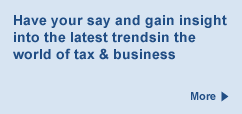VAT Flat rate scheme
Newsletter issue - May 2019.
The VAT flat rate scheme (FRS) is used by many small businesses to help simplify their VAT reporting obligations, although some VAT experts would argue that the scheme is not simple to use.
Broadly, the FRS is a simplified VAT accounting scheme for small businesses, which allows users to calculate VAT using a flat rate percentage by reference to their particular trade sector. When using the FRS, the business ignores VAT incurred on purchases when reporting VAT payable, with the exception of capital items which cost £2,000 or more. If the business incurs few expenses, and it operates in a sector with a relatively low FRS percentage, it will pay out less VAT to HMRC under the FRS than it would outside the scheme. Historically, many businesses have registered for VAT voluntarily before their turnover reached the VAT registration threshold, so they could make use of the cash advantage offered under the FRS.
Common percentages used by service-related businesses in recent years include:
- Accountancy and legal services 14.5%
- Computer or IT consultancy 14.5%
- Estate agents and property management 12%
- Management consultancy 14%
- Business services not listed elsewhere 12%
Since 1 April 2017, a new 16.5% FRS rate has applied for businesses with limited costs (see below). Since the rate of 16.5% of gross turnover equates to 19.8% of the net, the result is that there will be almost no credit for VAT incurred on purchases.
A 'limited cost' business is defined as one whose VAT inclusive expenditure on goods is either:
- less than 2% of their VAT inclusive turnover in a prescribed accounting period;
- greater than 2% of their VAT inclusive turnover but less than £1,000 per annum if the prescribed accounting period is one year (if it is not one year, the figure is the relevant proportion of £1,000).
'Goods' for these purposes must be used exclusively for the purpose of the business but exclude the following items:
- capital expenditure goods;
- food or drink for consumption by the flat rate business or its employees;
- vehicles, vehicle parts and fuel (except where the business is one that carries out transport services - for example a taxi business - and uses its own or a leased vehicle to carry out those services).
(These exclusions are part of the test to prevent traders buying either low value everyday items or one off purchases in order to inflate their costs beyond 2%.)
Further information on the FRS can be found here.
 Cookies are small text files that are stored on your computer when you visit a website. They are mainly used as a way of improving the website functionalities or to provide more advanced statistical data.
Cookies are small text files that are stored on your computer when you visit a website. They are mainly used as a way of improving the website functionalities or to provide more advanced statistical data.



















